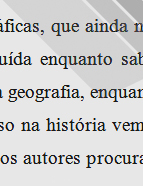

................................
Founded in 1875, the Geographical Society of Lisbon did not promote the study or writing of geographical works on the mainland territory. Its focus was geared towards the colonial territories, which needed to be explored and understood for the purposes of domination. Military personnel played a key role in this regard, studying the colonies through scientific commissions and enforcing control over the native populations as part of European colonisation. These regions had previously been poorly explored and inadequately described (Guimarães, A Sociedade ... [Society]). Among the best-known explorers attempting to penetrate inland Africa were Serpa Pinto, Roberto Ivens, and Brito Capelo. Meanwhile, the discipline of geography in Portugal was still trying to establish itself, however the Boletim da Sociedade de Geografia [Geographical Society Bulletin] showed no signs of this innovation (Lautensach, Bibliografia [Bibliography] pp. 1 and 15).
Oliveira Martins, who paid so much attention to the Social Sciences as a whole, was not particularly enthusiastic about geographical knowledge. Nonetheless, he included a brief geographical introduction in his História da Civilização Ibérica [History of Iberian Civilisation], which he continued in his História de Portugal [History of Portugal]. This was concise, perhaps due to his lack of geographical knowledge, as well as his view that the history of Portugal resulted from the desire for independence among the barons of Entre-Douro and Minho, a perspective previously adopted by Herculano. He emphasised that "the cause of Portugal's separation from the body of the Leonese monarchy is neither obscure nor requires lengthy digressions to be defined: it is the ambition for independence of the county's governor, who held it from the suzerain king" (Martins, Historia, I, p. 14). Thus, according to him, Portugal "does not owe its formation to geographical dictates: the bold, ambitious, and turbulent barons were at the same time ignorant of theories and systems. They advanced as far as the tip of their swords could reach: everything suited them, everything served them, as long as they expanded their domain" (Martins, Historia [History] I, p. 17). In Henry M. Stephens' History of Portugal, which was prefaced by Martins, the importance of the natural environment in explaining political independence is entirely dismissed. It states: "The Portuguese nation is a product of its history: this gives the History of Portugal an eminent value. Geographically, this small kingdom is an integral piece of the Iberian Peninsula, without natural borders that distinguish it from the larger portion of the peninsula, today called Spain, a name still applied to the entire Peninsula as in ancient times" (Stephens, Historia, p. 2).
